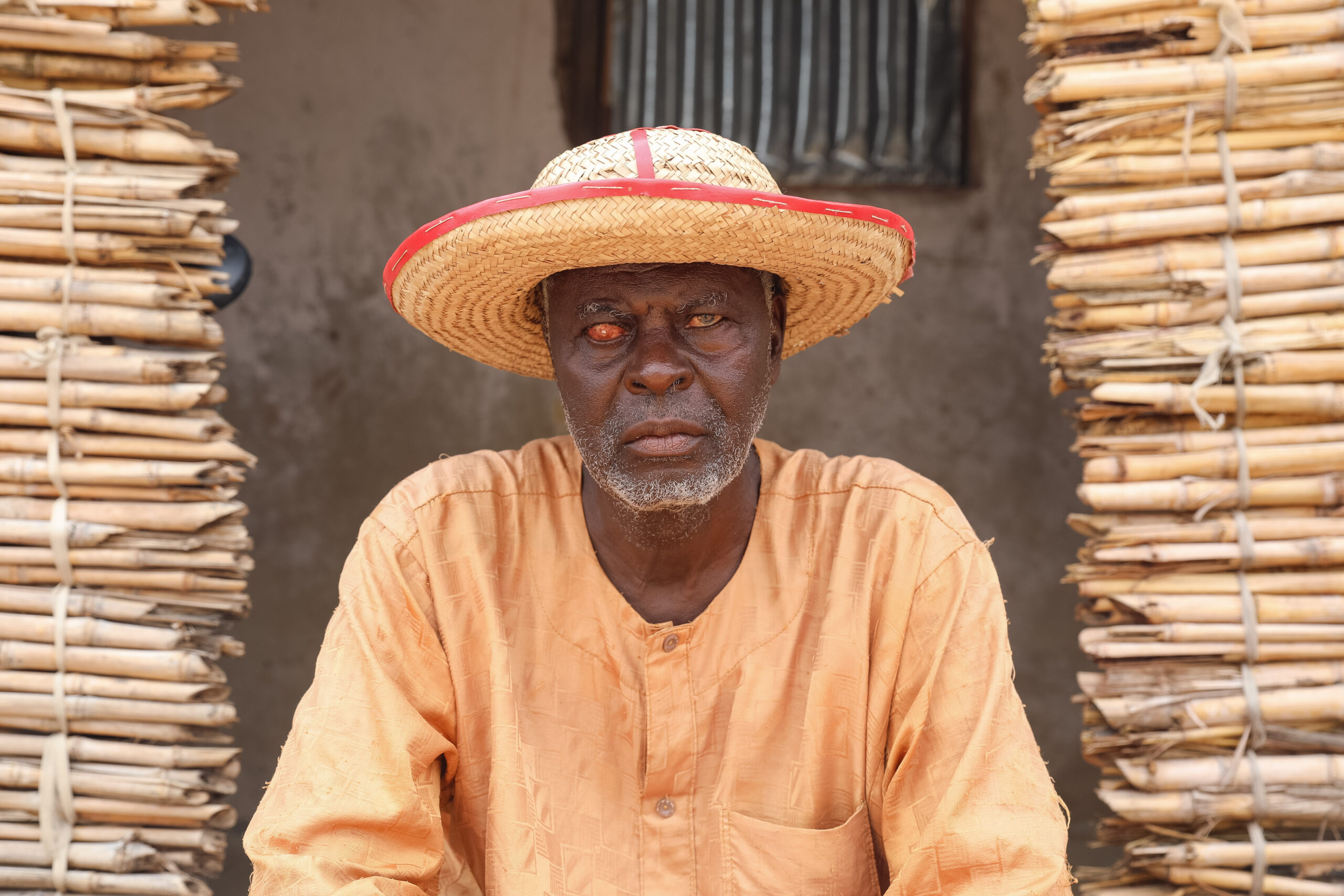Aging in a conflict
Thousands, if not millions of people, have fled in the past decade due to the Boko Haram conflict; communities moving to many states across Nigeria and migrating to neighboring West African countries. With the notorious internationally known members of the terrorist group firing guns and killing people in the wake of the conflict, villagers had […]

Thousands, if not millions of people, have fled in the past decade due to the Boko Haram conflict; communities moving to many states across Nigeria and migrating to neighboring West African countries. With the notorious internationally known members of the terrorist group firing guns and killing people in the wake of the conflict, villagers had no choice but to brave the traitorous and rocky roads to find safety. And in particular, for the innumerable villages across Adamawa State, an unquantifiable number migrated despite the route being complicated by the hilly villages they inhabit. At the same time, hiding in the mountains was safe for a few days before leaving. Villages were left as almost a ghost town.
The rest who remained were either recruited as fighters, treated as slaves, servants, or forced to marry members of the terrorist group to become sex slaves. The living conditions were described as near-death-like experiences. Starvations, beatings, beheadings were shown in videos that still haunt people in the regions. The atrocities committed by the deadly group has left in its wake fear and trauma. There is a sign of it everywhere across the North East of Nigeria. Inevitably, masses left to find solace and succor in neighboring towns or fled to an overstretched Cameroon with its overwhelmingly large number of internally displaced persons whilst some arrived in the outskirts of the federal capital territory of Nassarawa state.
As a result of this displacement, in the hilly region of Gurku in Nassarawa, a picturesque mountainous area is a camp for internally displaced persons fleeing conflicts across Nigeria. Gurku, a short drive from the luxurious city center of Abuja leads first to a busy bustling market around Mararaba. This densely populated market opens up to a quiet road that bends further down to reveal an estate-like array of homes. On one side is a school, on another a mosque, a mud guest house, shops, and a church. The road continues and ends at an expanse of land; farmland for the residents. This camp for internally displaced persons is unlike the many scattered around the country; it has built homes for the large percentage of the displaced after buying the land with the help of generous donors. In this seemingly well-coordinated settlement lives Ayuba Majiga, a seventy-nine-year-old man from Wagga, Madagali in Adamawa who arrived a few years earlier. Like many in the camp, he is a survivor of the Boko Haram conflict.
However, what sets him apart from the rest of the internally displaced persons is his age. At over seventy and a retired teacher, he is a small group of elderly persons displaced by conflict, living their final years in displacement. For most, life at retirement is a time to rest play with grandchildren, and enjoy the earnings, for Ayuba who says he walked for miles to flee, it is a devastating story of hardship.
‘’When you work for many years in the civil service for the government, after retirement, you expect to peacefully spend time with your family but here I am. And the government doesn’t care about you after retirement. There are no benefits. We are suffering’’.
Older people who are survivors of conflicts globally face a string of problems; only a few can escape from danger zones, they are isolated from family members as communities disintegrate whilst battling chronic illness. There are not many NGOs solely focused on geriatric care. In Nigeria, there zero non-profits specially designed for the special needs of the aged. In the case of Ayuba, despite being able to leave with his family, he suffers from the many issues associated with aging. It has been compounded by walking for miles from terrorists.
‘’I was a teacher and had retired officially in 2013. Shortly after, the conflict happened. I was living with my children in Mubi while my wife was in the village. I had taken my children to secondary school when we heard gunshots. We ran and ran. More than fifty kilometers, I would walk. I fell sick but I had no choice, we had to keep walking’’
From the villages in Adamawa, on foot and by car, he finally arrived in the outskirts of Abuja. One of his sons helped the family find other displaced persons in Nassarawa. A reconnection between an old friend led Ayuba and his family to Gurku. With help from non-governmental organizations, religious groups, and embassies, Gurku camp offers a seeming serene second home. Many of the inhabitants walk a short distance to a land to farm and feed families with the harvest on days food isn’t provided. Others are rearing animals. A retired teacher helps with the students. In spite of this, Ayuba who believed he would be home in his village after seven years of displacement laments bitterly on the frustrations of living in a camp. ‘’This is not home for me. I wish I was in my own house. There is no hope’’.
The psychological toll of the conflict is evident in his nostalgia for home. Sadly, the humanitarian crisis in the North East is failing to provide appropriate services for the older people caught in an unending insurgency.
